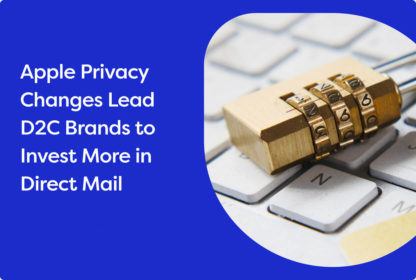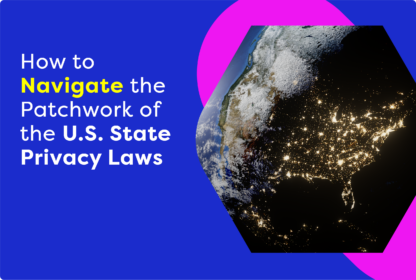It’s Data Privacy Day this coming Sunday in a year when third-party cookies are beginning to go away, and numerous states will enact their own privacy laws.
In honor of the day, we’re highlighting some of the best of our data privacy content. Consider it like a greatest hits album of sorts to help you keep in tune with a rapidly changing landscape.
“Lean in and get involved early.”
That was advice from PebblePost Chief Privacy Officer Lori Mason in our webinar,
Your Guide to Navigating The 2024 Data and Privacy Landscape, with Director of Revenue Marketing Allison Borrow last November.
In addition to the four tips Mason offers, she shared that her “mantra is really for marketers to get aligned with their privacy counsel or their lawyers very early on in the process.”
More than a third of states have passed comprehensive privacy bills or are in the process of doing so as we await a federal privacy law (will it take as long as cookie deprecation did?). This patchwork of laws can create challenges for advertisers, most of whom have customers across states.
Mason weighed in on this topic for the Association of National Advertisers article “Is the Patchwork of U.S. State Privacy Laws Untenable?” Head to the post for a summary of Mason’s insights or to read the full article.
3. The Meaning and Importance of “Robust Notice”
Do you know what the aforementioned state privacy laws all have in common? Most require “robust notice”—without clearly stating what that is.
Mason explains how brands can comply with robust notice with one of her favorite acronyms: PETS Choice. Your robust notice to consumers should be Prominent, Explicit, Transparent, and Specific. Read the blog post to understand what each of these adjectives means.
4. You’re Selling Data, and That’s OK (But Here’s What You Need to Know)
Few brands want to admit that they sell or share consumer data. But most brands engaging in modern marketing techniques do—which is fine if you meet data privacy regulations.
In this post, Mason describes what constitutes “selling” under the California Consumer Privacy Act (CCPA) and three things to do to ensure brands comply with California consumers’ rights.
5. Happy National Data Privacy Day!
No, we’re not punking you with another post on National Privacy Day like the one you’re reading now. This post from 2022 shares how PebblePost enables brands to send marketing mail only to consumers interested in the subject matter—a.k.a, with relevancy and respect.
“When you as a consumer express your data privacy preferences—by either opting out of receiving mail from the brands with which you shop, directly from PebblePost’s website, or through organizations such as the NAI—you’re working with PebblePost to ensure that you only receive mail from us if you want it,” Mason said.
Privacy Experts at Your Service
Want to get guidance on what you should consider in the realm of Programmatic Direct Mail and data privacy this year? We’re offering a free consultation with Lori Mason—click here to register your interest.



